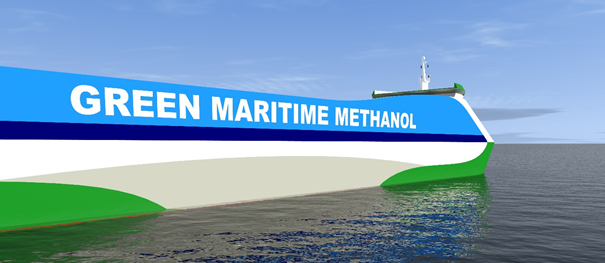
GMM report on benchmark analysis
Rotterdam, 5 November 2020. The Green Maritime Methanol consortium studies the possibilities for sustainable Methanol as a maritime transport fuel. Green Methanol is an important candidate as a future fuel for the shipping industry. It is widely available, can be produced in a sustainable way, is easily stored on board of ships and can be burned in engines with minor modifications.
As part of the project a report was developed that summarizes existing literature. The report summarizes the policy context for development of methanol as a fuel and the technical characteristics of methanol on board. Furthermore, a comparison is made with other next generation energy carriers in terms of fuel properties, technological readiness, fuel pricing and emissions. Whilst the energy density of methanol is only around half that of MGO or HFO, it is still relatively competitive in comparison to other alternative fuels, particularly hydrogen.
Furthermore, it potentially can be handled by most existing diesel systems with only small adaptions required. The report furthermore identifies options for switching to methanol for several ship operational profiles and links these results to the overall importance of these shipping sectors in the Dutch context. It is anticipated that for almost all investigated vessel types, sailing on methanol will require to bunker more frequently, or have increased bunker capacity onboard.
However, it was assessed that the fuel usage of a large share of the vessels calling Dutch ports (ferries, container vessels and general cargo vessels) would allow the usage of methanol in combustion engines. For the smaller vessels travelling over shorter distances (such as ferries between European ports), the application of other power train options such as the use of electricity or Hydrogen in combination with fuel cells, could potentially also be viable.
The report can be downloaded via the following link: https://repository.tudelft.nl/view/tno/uuid:2d6c88ba-7b1a-4d83-a3dd-4a9a451be219
The project is supported by “TKI Maritiem” and the Dutch Ministry of Economic Affairs and Climate Policy and runs until December 2020.